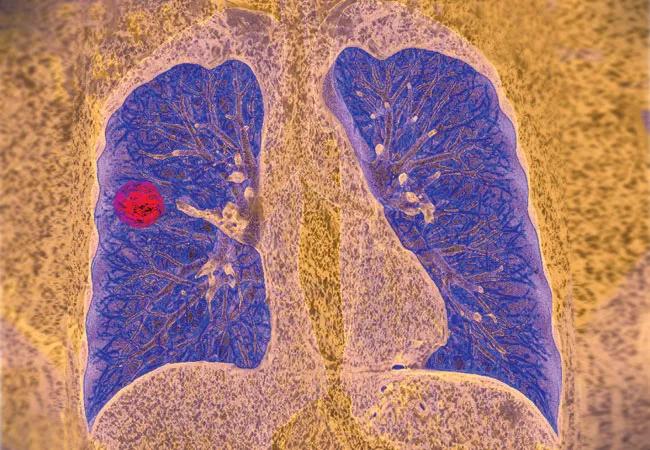Webinar series provides expert insights

The challenges of managing patients with lung cancer have been compounded by the novel coronavirus (COVID-19) pandemic.
Advertisement
Cleveland Clinic is a non-profit academic medical center. Advertising on our site helps support our mission. We do not endorse non-Cleveland Clinic products or services. Policy
Oncologists and their patients face complex issues, such as the best setting for care delivery, whether treatments should be delayed to minimize infection risk, and how to differentiate between cancer- and viral infection-related symptoms.
Decision-making is further complicated by the extreme demands that responding to the pandemic has placed on hospital personnel and resources.
“We need to make sure our patients don’t feel they are being pushed aside, that we’re not going to take their treatment and their cancer seriously,” says Nathan Pennell, MD, PhD, Director of Cleveland Clinic Cancer Center’s Lung Cancer Medical Oncology Program. “We know that patients with lung cancer have very serious, life-threatening illnesses, potentially in the same time frame as we’re going to be dealing with this pandemic. I don’t think you can use a guideline to make a blanket recommendation for every patient. You have to take into account the severity of their disease. You really have to individualize (decision-making), both for the patient’s situation and what their risk is, and what the risks and resources are at the place where you’re treating them.”
Dr. Pennell is one of several experts taking part in an ongoing weekly webinar series, “Managing Lung Cancer Patients Through the COVID-19 Pandemic: What to Know,” organized by OncLive, the website for oncology specialists. The first two webinar episodes, each approximately an hour in length, are available for streaming by registering here. The next live episode takes place April 8 at 8 pm EST. Viewers will be able to submit questions.
Advertisement
The topics discussed so far by Dr. Pennell and his fellow panelists — Charu Aggerwal, MD, PhD, of the University of Pennsylvania’s Abamson Cancer Center; H. Jack West, MD, of the City of Hope Comprehensive Cancer Center; and Stephen Liu, MD, of Georgetown University — include:
Advertisement
Advertisement

Early results show strong clinical benefit rates

The shifting role of cell therapy and steroids in the relapsed/refractory setting

Radiation therapy helped shrink hand nodules and improve functionality

Standard of care is linked to better outcomes, but disease recurrence and other risk factors often drive alternative approaches

Phase 1 study demonstrates immune response in three quarters of patients with triple-negative breast cancer

Multidisciplinary teams bring pathological and clinical expertise

Genetic variants exist irrespective of family history or other contributing factors

Study shows significantly reduced risk of mortality and disease complications in patients receiving GLP-1 agonists